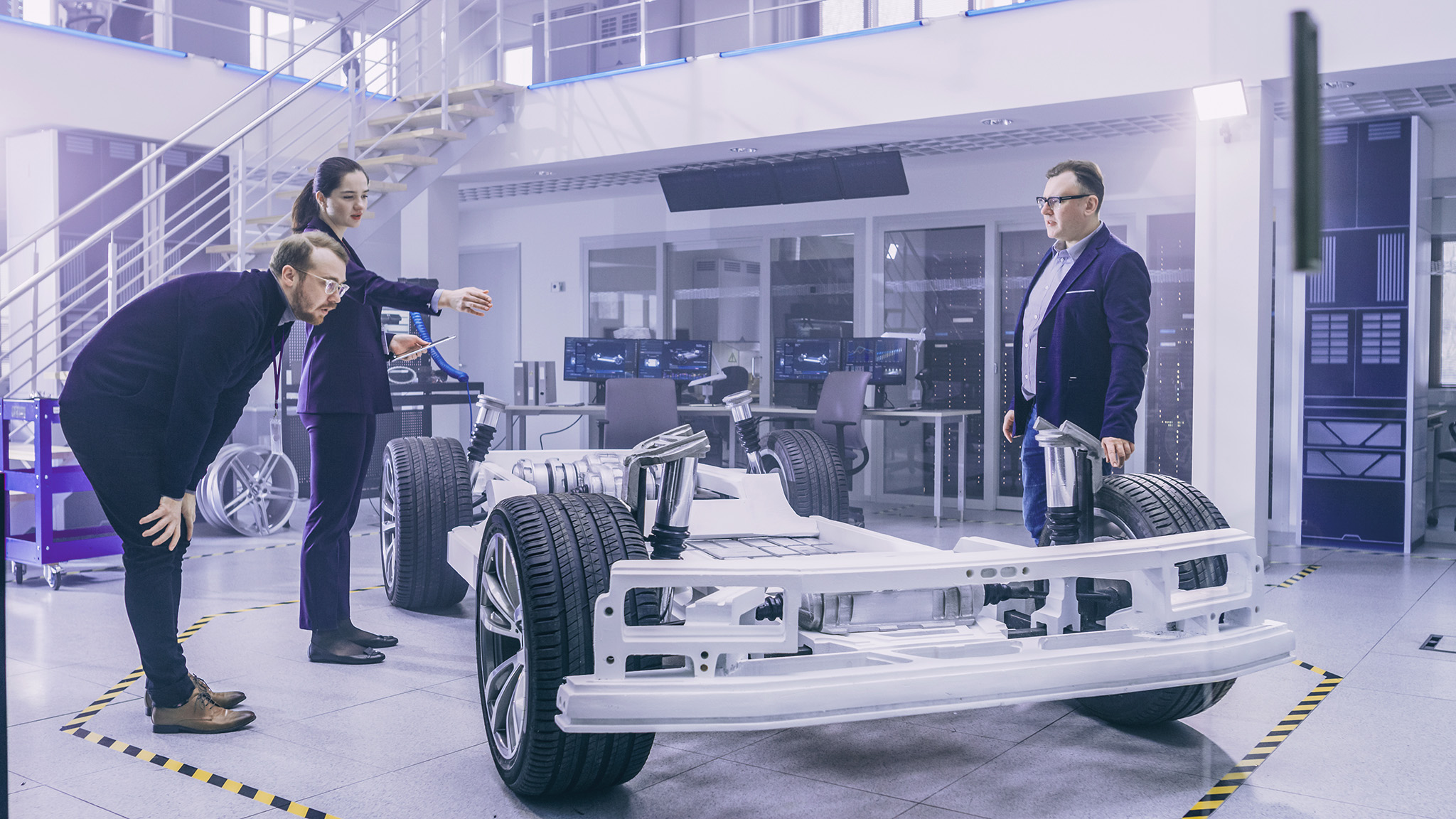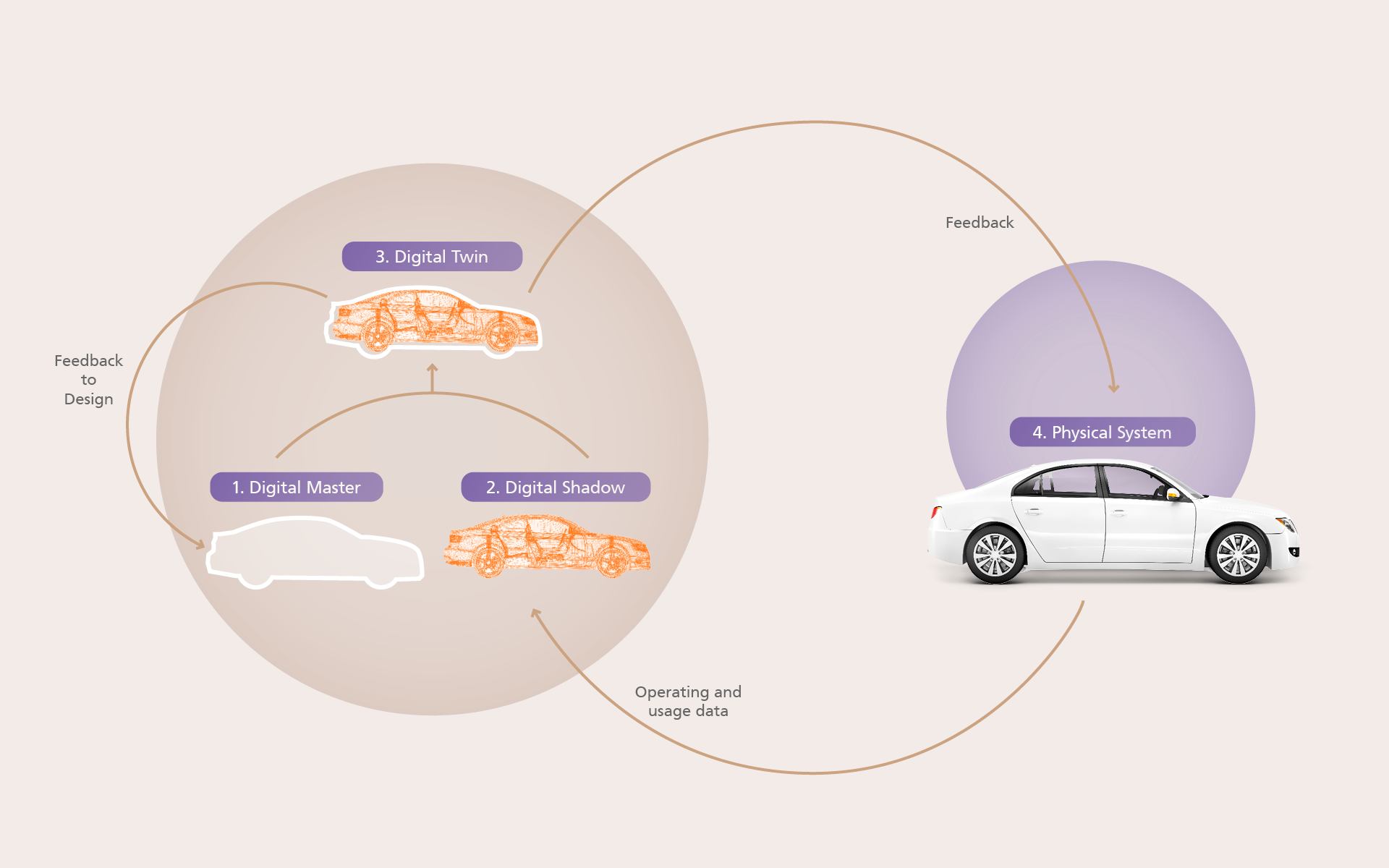All Hands on Deck
Nowadays, complex products, such as cars, typically have a significant »digital component«. Important functions throughout their entire lifecycle have shifted from the physical world to virtual data spaces. In the automotive industry, products are developed almost completely virtually, entire production facilities are controlled through digital twins, and smart products are capturing an increasing amount of data. New requirements for sustainability and recycling make the use of data essential even after a product’s end of life. With a high degree of cross-organizational processes, more and more, this data must be used collaboratively. The decentralized exchange of data is also on the rise due to advances in autonomous driving and the increasing connectivity of vehicles. Furthermore, the use of software from various manufacturers also plays a significant role, as ever more complex service and function chains need to be represented to efficiently process and use data.
All these complex interconnections come with correspondingly great challenges that can be illustrated through a forward-thinking technology that could have a profound impact on the field of mobility: collaborative digital twins.
Master, Shadow, Twin
Digital twins are a strategy for effectively utilizing data and are often an essential part of the digitalization strategy for German and European companies. Digital twins are virtual representations of a physical entity that combine virtual (master) and real (shadow) data to perform a given function. Let’s take your car as an example. There are probably thousands of cars like yours. They were all produced based on the same drawings and production instructions, and they have maintenance cycles based on average usage patterns. The models, simulations, and data used to manufacture all these cars are called the »master.« However, your car is unique. From the moment of production, there were peculiarities that only applied to your car. There might have been assembly variations, or it could have been driven on particularly rough roads or in very hot, cold, or wet regions, requiring early maintenance. These data that represent the reality of your unique car are called the »shadow.« By comparing the master and shadow data of the car, functionalities can be implemented in the »digital twin,« for example, making predictions about the optimal maintenance timing.
Digital twins are essential in the entire mobility sector. They help professionals detect anomalies, assess quality, predict maintenance needs, train autonomous driving systems, and monitor various mobility systems. To achieve this, data from various players and sources, such as vehicle sensors, manufacturer development models, and climate or traffic information, need to be combined, giving rise to collaborative digital twins that enable cross-company and cross-organizational product development teams to design innovative, efficient, and integrated products. To ensure data sovereignty, protection and ultimately the trust of all parties involved, this must all happen in a well-regulated environment.
Utilizing Data Together Thanks to Gaia-X
This is where the Gaia-X initiative comes into play. It is developing an open-source framework that enables a federated and secure data infrastructure. This allows data to be exchanged in a trusted environment while ensuring the digital sovereignty of data owners and interoperability across different platforms.
To achieve this, an open-source toolbox with so-called »Gaia-X Federation Services« (GXFS) is being developed. These services represent the minimum technical requirements for establishing and operating a cloud-based, self-managed data infrastructure ecosystem. They include a catalog component to establish common data description standards among data space participants and intelligently link data and services to collaborative digital twins. Additional rules and components for »compliance,« »sovereign data exchange,« and »identity & trust« enable the definition and enforcement of rules for collaborative data usage, such as contract completion or access rights management in the shared data space.
The Gaia-X ecosystem marks the dawn of a new era of cross-industry collaboration. It facilitates the development and implementation of fair and transparent databased business models, reducing their complexity and costs. The vision of Gaia-X is a thriving digital industrial landscape where the values of data sovereignty, collaboration, and innovation are merged harmoniously. At Fraunhofer IPK, scientists are conducting research in collaboration with companies from the digitalization and mobility sectors as part of Gaia-X, aiming to make this vision a reality. They delve into profound questions such as the development of digital business models, data flow structuring, the creation of shared digital twins, the establishment of suitable IT systems, and the development of ontologies and information models to ensure data compatibility.
 Fraunhofer Institute for Production Systems and Design Technology
Fraunhofer Institute for Production Systems and Design Technology

